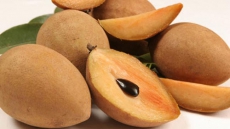A unique smartphone app developed by an Indian-American researcher from the Johns Hopkins University has helped married rural women in India better understand contraceptive choices, leading to a dramatic increase in women using modern family planning methods in just a few months.
According to Sanjanthi Velu, Asia team lead at the Johns Hopkins Centre for Communication Programs (CCP), women who watched motivational videos on the app called "Gyan Jyoti" were 4.5 times more likely to use modern contraceptive methods than those who did not.
"This shows that mobile technology provides an innovative and dynamic platform for social and behaviour change communication," Velu said.
"It can encourage conversations between women and frontline health workers that are interactive, culturally relevant, and personalised which lead to increased, sustained use of modern contraceptive methods," he explained.
In one district of Bihar, smartphones loaded with the Gyan Jyoti app were given to 14 accredited social health activists (ASHAs), while in another district another 14 ASHAs were supplied with more low-tech SD cards.
Each set of ASHAs - community health workers - regularly visits roughly 1,400 rural women.
The ASHAs with the smartphone app were able to customise their family planning counselling, showing videos most appropriate to answer each woman's particular questions.
Those ASHAs who had the SD card could show the videos, but did not have the benefit of customising their interaction.
The ASHAs using the app were also able to share the films via Bluetooth if the women had the technology, enabling the women to show it to their husbands or mothers-in-law at a later time.
The researchers randomly chose 406 women from each district to study in May 2015, five months after the app and the SD cards were made available to the ASHAs.
They found that 22 percent of women who were counselled with the app were using modern contraception such as IUDs, oral contraceptive pills and injectable contraception at the end of the study period, while 13 percent of the women were using modern contraception in the district without the app.
Women who were visited by an ASHA during the study period were 1.9 times more likely to be using modern contraceptive methods.
More importantly, women who had watched the videos were 4.5 times more likely to be using modern contraceptives, no matter whether they were shown by an ASHA with the app or an SD card.
"Our research shows that there is value in developing targeted mobile platforms that can be customised depending on the needs of each provider and her clients," Velu noted.
The app incorporates a variety of videos about family planning and modern contraceptive methods, including entertaining and educational films, testimonials from happy couples who are using contraception, question and answer videos with physicians and other information that aims to dispel myths and misconceptions.
According to Velu, the app can be adapted for different languages or other types of health information that families may need.
The findings were presented at the "International Family Planning Conference" in Nusa Dua, Indonesia on Thursday.





